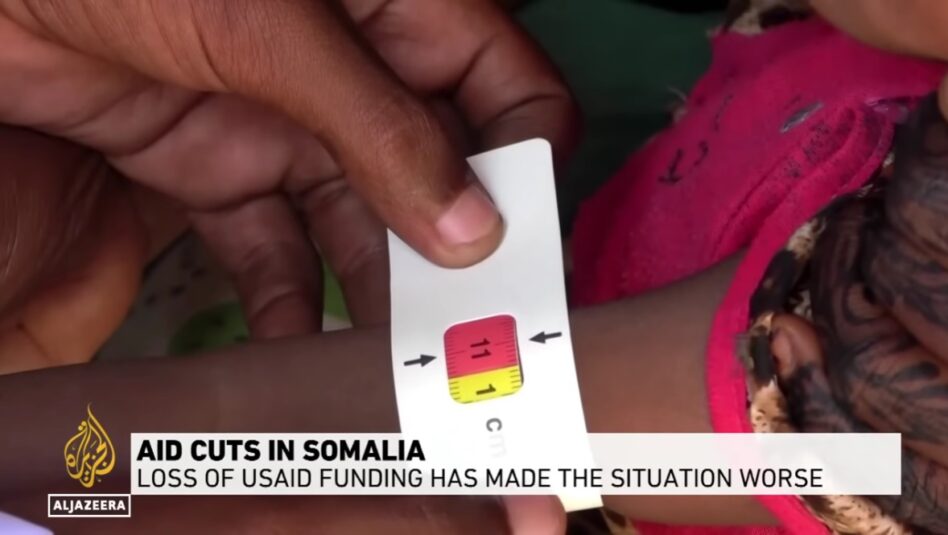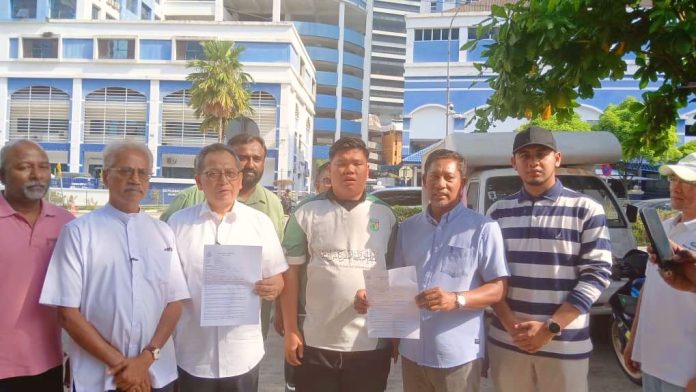Still looking for unlikely suitors for Malaysia Airlines
The new government led by Pakatan Harapan made it quite clear that the country may not be able to continue pumping money into the beleaguered national airline, Malaysia Airlines Bhd (MAB) as the country is facing bigger financial woes.
Numerous plans are reportedly being proposed for MAB, whether to sell it fully or partly or enter into a strategic partnership.
Khazanah Nasional Bhd, which owns MAB, had in late July hired Morgan Stanley to explore strategic options to turn around the airline including a potential stake sale.
Its managing director Datuk Shahril Ridza Ridzuan said it had received proposals from more than 20 parties, including those from fund managers as well as global and regional airlines to take over the beleaguered national carrier.
However, it is unlikely that Khazanah is considering selling MAB as Shahril believes there is “intrinsic value” in MAB and he aims to find the right partnership to unlock the national carrier’s value.
The sovereign wealth fund expects to finalise the strategic partner for MAB by the end of the year. As at the time of writing, there is still no news on the matter.
While many are still waiting to know the fate of the national carrier, they questioned if finding a strategic partner is the best solution for MAB. Instead, the government should just hive off its stake in MAB to cut its losses and channel its resources to revive the country’s economy.
As it is, Prime Minister Tun Dr Mahathir Mohamad had said the government would consider selling the national carrier “if there is a good offer”.
A sum of RM23.6 bil has reportedly been injected into MAB since 2001 to turn it around. Khazanah paid RM1.4 bil to take MAB private in 2014 and laid out a five-year turnaround plan. However, the airline is nowhere near returning to the black.
Last year, Khazanah suffered a pre-tax loss of RM6.3 bil, mainly due to RM7.3 bil in impairments, half of which were attributable to MAB.
Early this year, MAB group CEO Captain Izham Ismail said the national carrier posted a narrow loss in 2018 but did not disclose the numbers.
Based on the latest filings on Companies Commission of Malaysia, MAB’s net loss ballooned to RM812.11 mil in the financial year ended Dec 31, 2017 from RM438.87 mil in the previous year despite posting marginally higher revenue of RM8.67 bil versus RM8.57 bil.
As at Dec 31, 2017, MAB had RM4.09 bil in current liabilities versus RM3.94 bil in current assets.
The recent downgrade of Malaysia’s aviation system by the US Federal Aviation Administration has probably thrown a spanner in the works in MAB’s turnaround efforts. This is because MAB’s code-share agreements with US-based carriers may be affected.
MAB currently flies to the US through its oneworld partners, which include American Airlines, Cathay Pacific Airways and its affiliate Cathay Dragon, Finnair, Japan Airlines, Qatar Airways, Royal Jordanian and SriLankan Airlines.
With what is happening in the aviation industry and the numerous attempts at piloting the national carrier to profitability from its asset unbundling exercise to hiring foreign CEOs, it is understandable that people are getting frustrated. We have done almost everything possible to try to resuscitate MAB. Is there hope for the ailing and ageing bride? Probably not, unless the government is willing to sell its stake or let the airline go bankrupt and start anew. – by Doreenn Leong
Are Umno and PAS getting hitched?
The alliance formalisation between Umno and PAS was an event that has been in the rumblings since Barisan Nasional lost the general election to Pakatan Harapan last year. Recall that these two were most definitely of the “rival” category back when BN was in power, and this really seems to be a case of strange bedfellows. Or is it?
As opportunities arose, in the form of by-elections over 2019, Umno and PAS moved into an unspoken alliance, with the outings jokingly called “dates” with the Semenyih and Cameron Highlands by-elections among those “dates”.
However, as of the by-election at Tanjung Piai, a formalised alliance was put in place by the two political parties, with jokes abounding that they are now in an “honest relationship”, with a Sabah-based Chinese language paper publishing an image of Umno president Datuk Seri Zahid Hamidi and Datuk Seri Haji Abdul Hadi Awang in a suit and wedding gown respectively, proclaiming the marriage of the two parties following the announcement.
This drew, of all things, complaints from the duo that the picture depicted them as approving homosexual marriage. But first mention that the alliance was a marriage of the two parties came from Umno deputy president Mohamad Hasan, who was acting president of Umno during the formalisation of the alliance.
“We ‘exchanged rings’ in Sungai Kandis, were ‘engaged’ in Seri Setia and then we decided we wanted to get ‘married’ – this is the official ceremony. And now we are sitting on the dais,” Mohamad said during the event.
The Tanjung Piai by-election was the first formal outing of the alliance, with the new Muafakat Nasional (MN) alliance fielding Datuk Seri Dr Wee Jeck Seng of the Malaysian Chinese Association (MCA), while Pakatan Harapan fielded Karmaine Sardini of Parti Pribumi Bersatu Malaysia (PPBM). The campaigning from MN used caricatures of the two parties represented by shops, with the MN representative marked as a Chinese salesman for a halal, Malay-Islam shop, while the PH representative is marked as a Malay salesman for a non-halal shop.
Race Card 2.0?
Of course, with PAS and Umno forming this new non-coalition alliance, the question arises about whether or not they are playing to racial politics (though, from the caricatures seen, this seems to be a given).
“Umno and PAS should not fall into narrow racial politics as well as extremist religious beliefs,” said Zahid at the Muslim Unity Rally, where he assured that, despite appearances, the alliance would not be about racial politics, and that it would respect and uphold the Federal Constitution.
Considering the fact that PAS had to allay MCA’s fears on record, this is definitely saying something. MCA had responded negatively as to whether this would be a new coalition, and seemingly only joined the alliance with trepidation, as its president Datuk Seri Wee Ka Siong has stated that his party sees MN as representing only the “spirit of unity” among the opposition parties.
“MCA does not have to worry about what PAS strives for in its politics. PAS is not an extremist party as it is being perceived as. We have governed for many years and we are a registered party that follows the laws of the country. PAS itself rejects any sort of extremism,” said Datuk Tuan Ibrahim Tuan Man, deputy president of PAS.
Still, with the methods of campaigning and calls for Malay unity, one cannot help but wonder if Muafakat Nasional is truly for all Malaysians. – by Xavier Kong
Chow’s Penang Transport Master Plan all set for takeoff
The Penang Transport Master Plan (PTMP) has been a hot topic in the country for the last three years after the project’s initial cost of RM27 bil was overblown to RM46 bil. Concerns were raised over the cost of PTMP, the source of funds, the reclamation project, its impact on the livelihood of some 5,000 fishermen, its environmental effects and more.
It faced its fair share of strong criticism from several NGOs and other organisations under the Penang Forum. They have asked the state government to review the PTMP. Their main query is why the state is insisting on the expensive and environmentally damaging projects to be carried out.
However, the Penang government is unlikely to provide evidence-based answers to clear the air. Instead, Penang Chief Minister Chow Kon Yeow continues to brush off various concerns raised by the Penangnites especially and civil society as a whole.
The project is expected to take off any time soon. Chow said on Oct 15, the PTMP project would be tendered out in the second half of this year. He also said the state government is looking for a project delivery partner (PDP), finalising financial structure and other aspects of the project.
He added that tenders would be called for the Penang South Reclamation (PSR), Penang Island Link 1 (PIL1) and the Light Rail Transport (LRT) projects. Several companies have shown interest in the project after PSR obtained the Environmental Impact Assessment (EIA) approval with 72 conditions, he said.
Chow noted the PSR, PIL1 and LRT projects would be bundled together, but later each project can be packaged out according to risk allocation.
According to news reports dated Dec 5, Gamuda Bhd which is the controlling shareholder in SRS Consortium Sdn Bhd will soon sign the PDP agreement for the PTMP with the state government.
When SRS Consortium first signed a PDP agreement with the Penang government in 2015, its role as a PDP was to help the Penang government implement this economic stimulus growth project.
However, that amount has since been revised to RM46 bil, making the signing of a new agreement with SRS Consortium necessary.
Penang Forum offered options to review the project and to slash the cost of the PTMP. Instead of a single elevated light rail line, a PIL1 highway and a tunnel, an integrated public transport system for almost the entire state would cost just RM10 bil, according to Penang Forum.
The main question is why the state government did not take these counter proposals into account. With an annual total state budget of about RM1 bil why has the state not done a comparative financial analysis of alternative approaches? Why are cheaper alternatives not considered?
PTMP represents the Penang government’s plan to improve transportation across the state. It consists of railway, cable car lines, new highways and even an undersea tunnel. – by Sharina Ahmad
People and events in 2020 – Part 1
People and events in 2020 – Part 2
People and events in 2020 – Part 3
People and events in 2020 – Part 4
People and events in 2020 – Part 6








